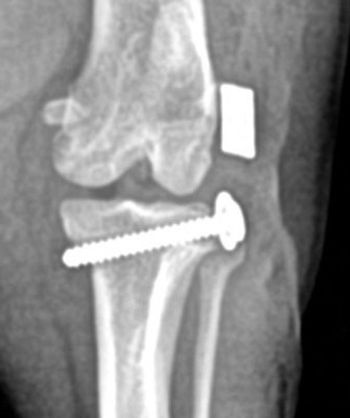
The all-natural drugs you may already be using (Proceedings)
Many clients are requesting all natural and alternative treatment options as they are under the impression that they produce less adverse effects than pharmaceutical compounds. This is a common misconception as some of the most toxic compounds known are natural products such as botulinum toxin, ricin, cobra venom, and uranium, among many others.
Many clients are requesting all natural and alternative treatment options as they are under the impression that they produce less adverse effects than pharmaceutical compounds. This is a common misconception as some of the most toxic compounds known are natural products such as botulinum toxin, ricin, cobra venom, and uranium, among many others. It is important to discuss with clients all medications that an animal is on, including dietary supplements as they can have adverse effects and drug interactions similar to pharmaceutical compounds. St John's wort is a hepatic enzyme inducer (cytochrome P450) that can reduce the effectiveness of some drugs such as cyclosporine, digoxin, diltiazem, and vincristine among others. In contrast, grapefruit juice extract is a hepatic enzyme inhibitor (cytochrome P450) that can result in drug toxicity with drugs such as cyclosporine, digoxin, diltiazem, and vincristine among others.
Many pharmaceutical compounds in use are purified naturally occurring compounds or are commercially synthesized compounds that occur naturally. Many other pharmaceuticals are semi-synthetic in which a natural compound has been modified to produce a more favorable pharmacologic compound. Some important semi-synthetic compounds include aspirin, cephalexin, cefazolin, clindamycin, and amoxicillin. In contrast some pharmacologic compounds are completely synthetic including the fluoroquinolone antimicrobials.
It is important to realize the benefits and limitations of dietary supplements and "natural" products. Most of these products are not approved by the FDA and have not been demonstrated to be safe and effective in controlled clinical trials. Some compounds have undergone limited trials, but none of them have undergone the scrutiny of an FDA trial. Another important point to remember is that most of these products are not subject to Good Manufacturing Practices demonstrating the purity and potency of the final product as mandated for FDA approved therapeutics. The manufacturers of dietary supplements are not required to assess stability of the active ingredients, therefore they may decrease in effectiveness over time. Stability of some compounds may be as short as a few hours depending on their manufacturing process. Another consideration is the potency of an active ingredient may vary batch to batch due to source of product, time of harvest or collection, and strain differences.
An example of variability of natural tinctures occurred with tincture of opium in which there was up to a 2.5 fold difference in codeine and morphine concentrations in tincture of opium compounds in some foreign countries where it is not a regulated product. The tincture of opium compounds in the USA are strictly regulated and must meet standard concentrations (10 mg/mL of morphine, 0.5 mg/mL codeine). As another example, the glucosamine and chondroitin content assessed in dietary supplements ranged from 25-115% of the stated amount of glucosamine and 33-110% of chondroitin and within bottle variability differed significantly. In a similar study assessing products marketed for horses, the ranges of glucosamine and chondroitin were 63.6 – 112.2% and 22.5 – 155.7%, respectively, of the stated label amount.
The purity of FDA approved products is routinely monitored for the presence of contaminants. However monitoring for contaminants is not required for nutritional supplements. A study of childbearing age women taking traditional Chinese herbals resulted in women taking herbal supplements having 20% higher blood lead concentrations compared to women not taking herbals. Other studies have found amounts of mercury, arsenic, and cadmium exceeding legal permissible amounts in herbal products. A survey of 247 traditional Chinese medicines results in 9 products exceeding the tolerable daily intake (TDI) of arsenic, 3 products exceeded the TDI for lead, and 12 exceeded the TDI for mercury. The most egregious offenders exceeded the TDI for arsenic by 2756 times the recommended maximum level. Therefore the thought that at least "all natural" products won't hurt you is not an accurate generalization.
The following tables give a partial listing of drugs used that are "all natural" in respect to their presence in nature. Many of the compounds are produced synthetically or through semi-synthetic processes. The advantages of using pharmaceutical formulations include consistency of potency, purity, and formulations.
Disclaimer: The information is accurate to the best of the author's knowledge. However recommendations change as new data become available and errors are possible. The author recommends double checking the accuracy of all information including dosages.
Newsletter
From exam room tips to practice management insights, get trusted veterinary news delivered straight to your inbox—subscribe to dvm360.




